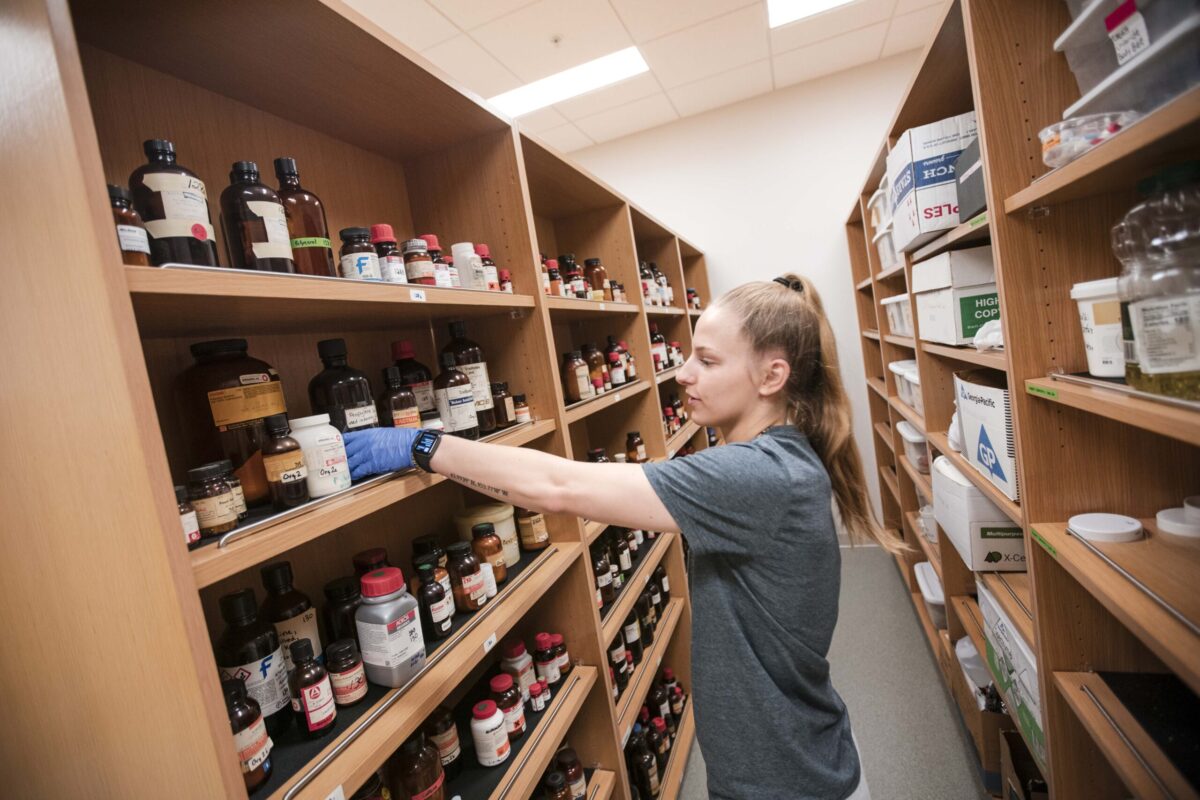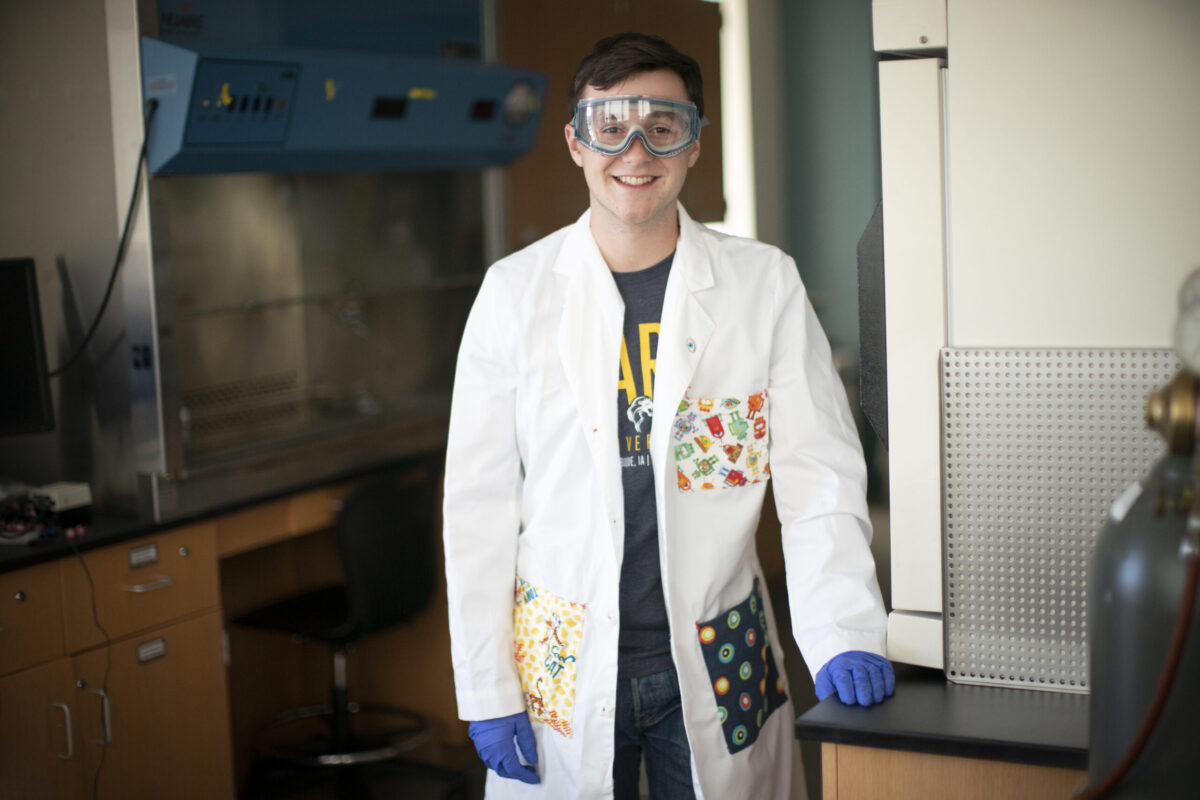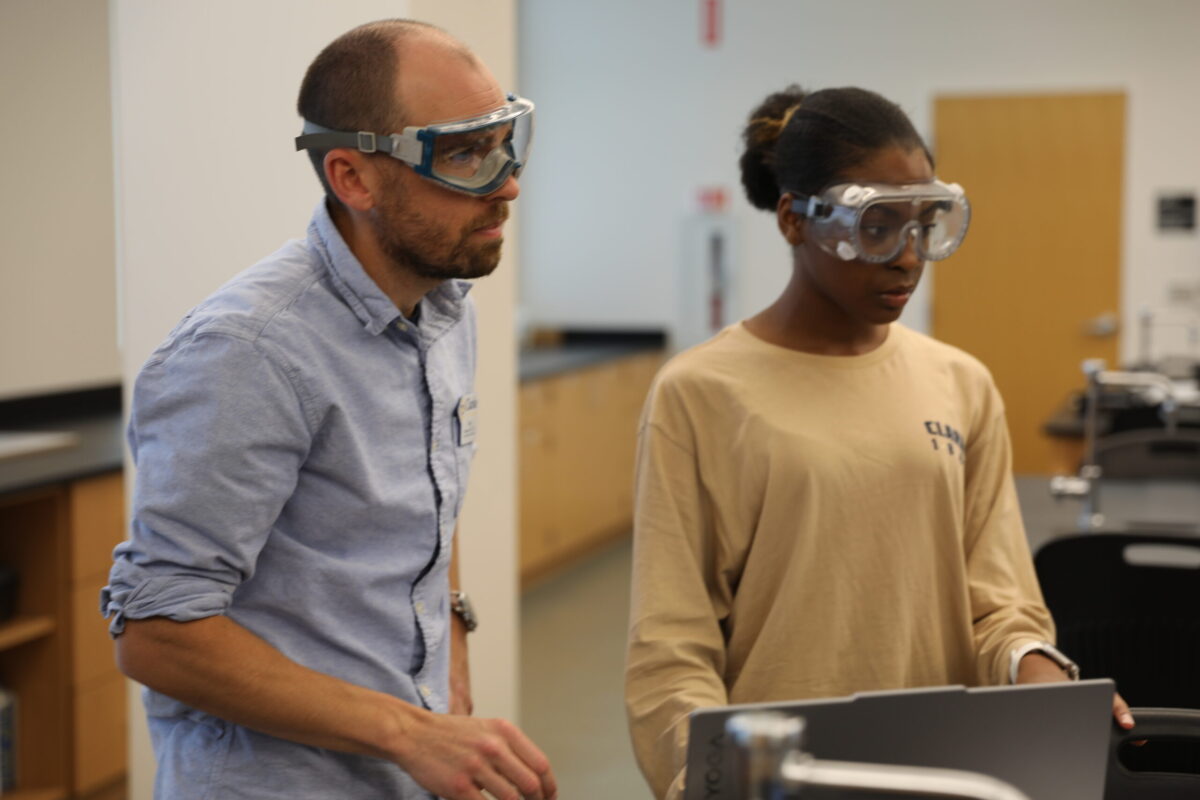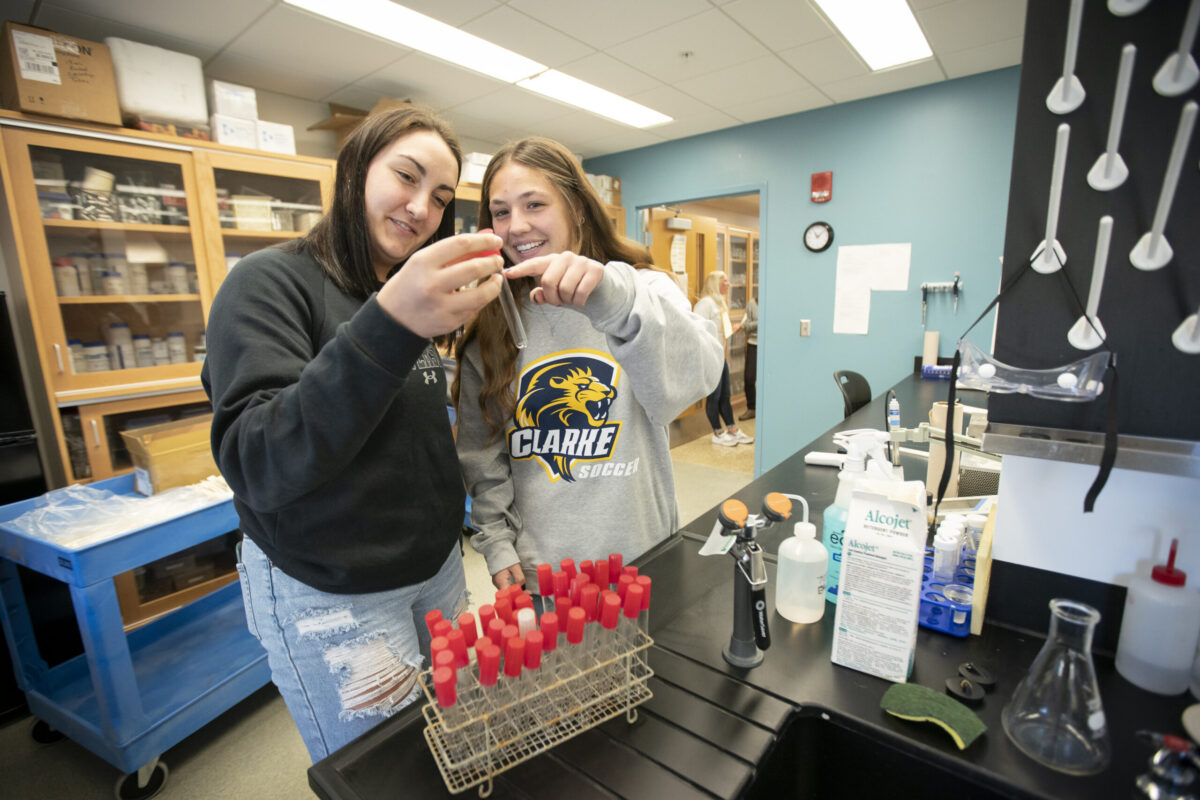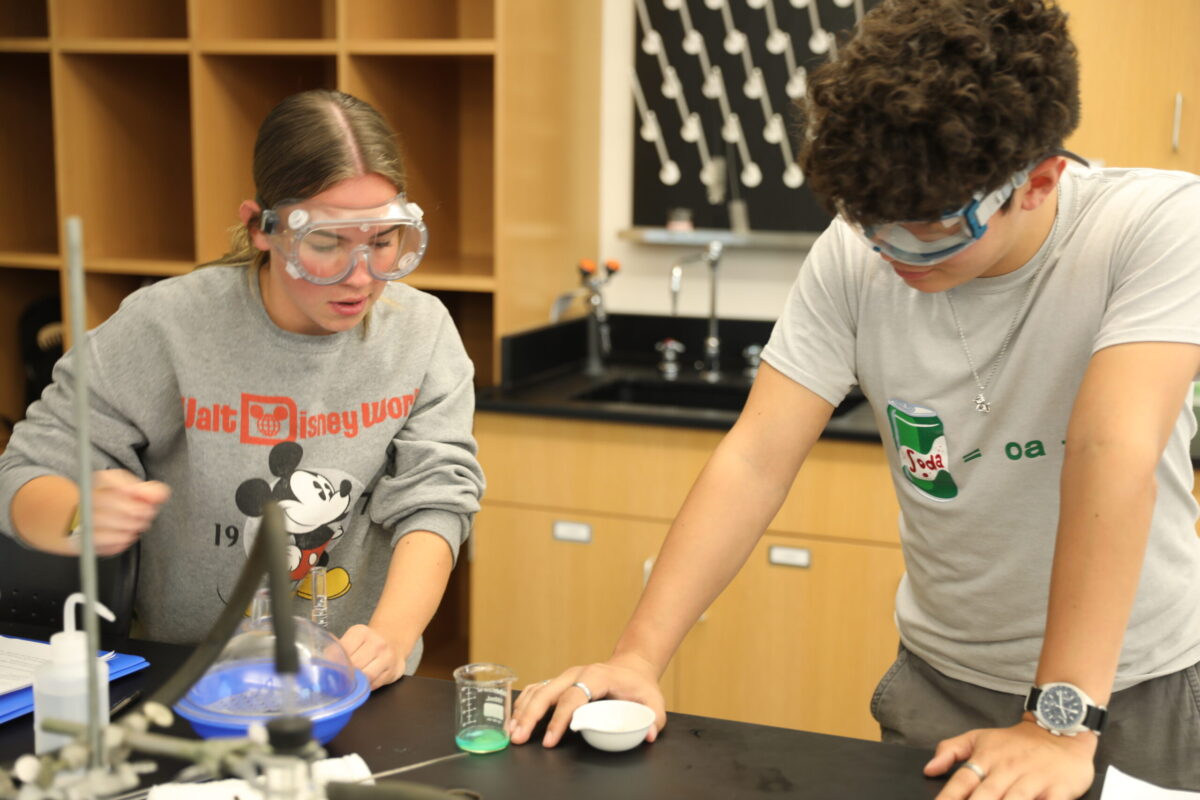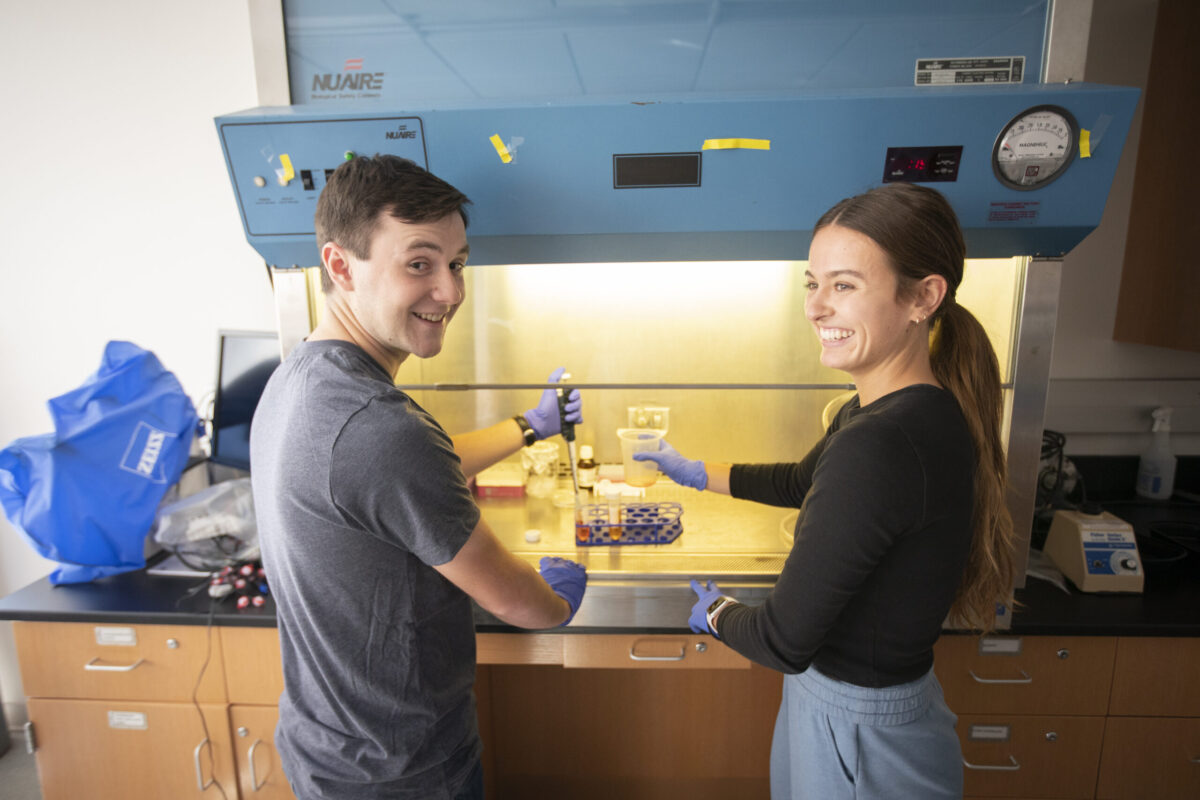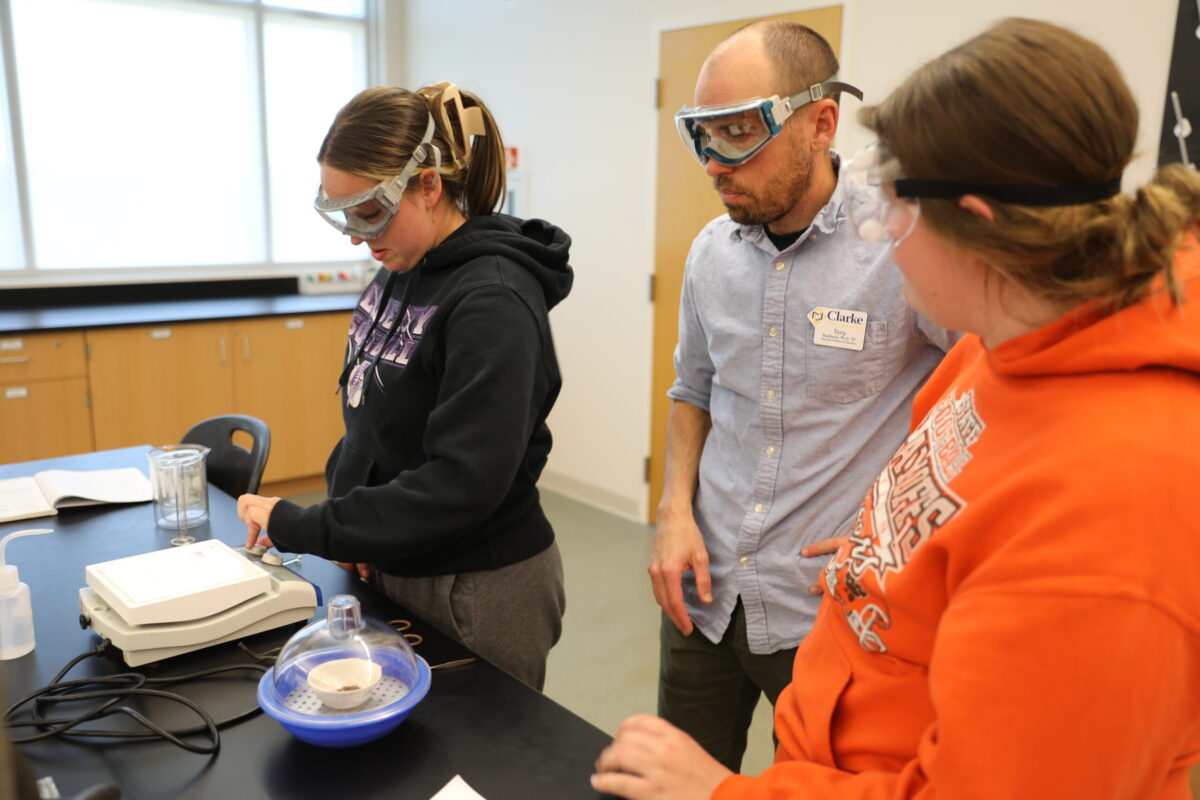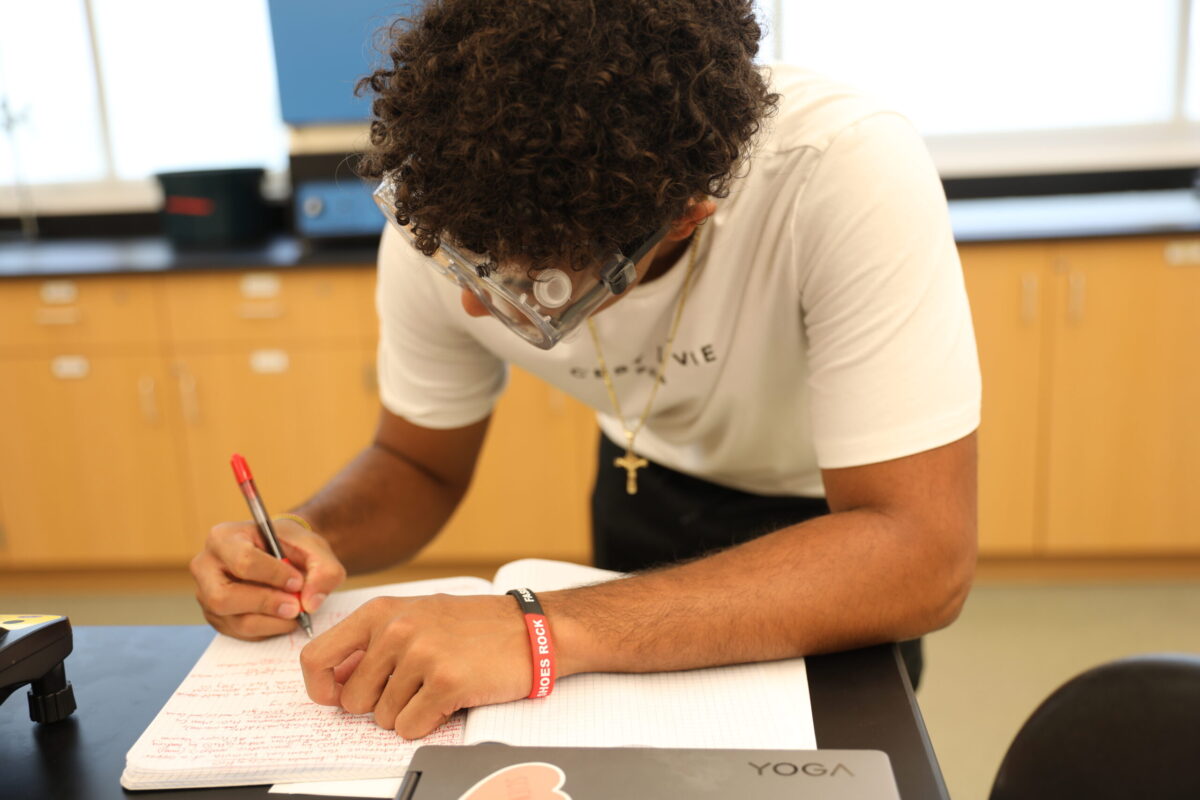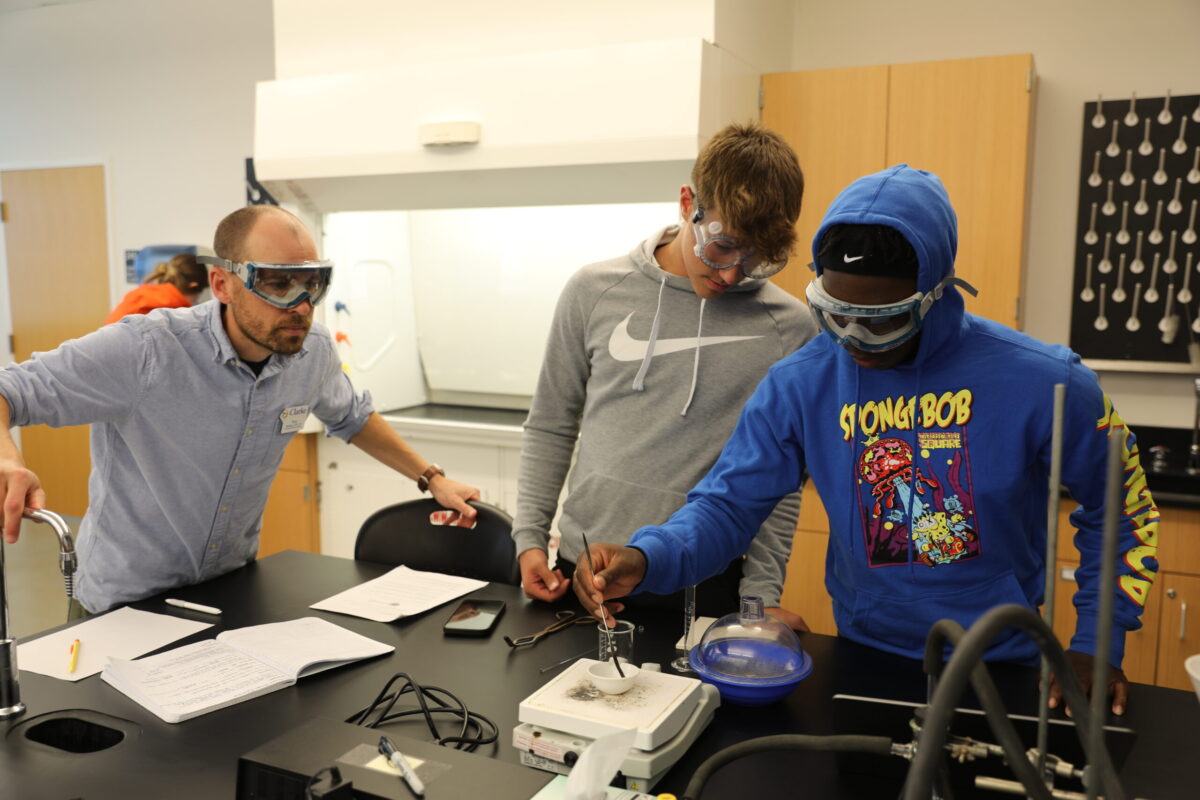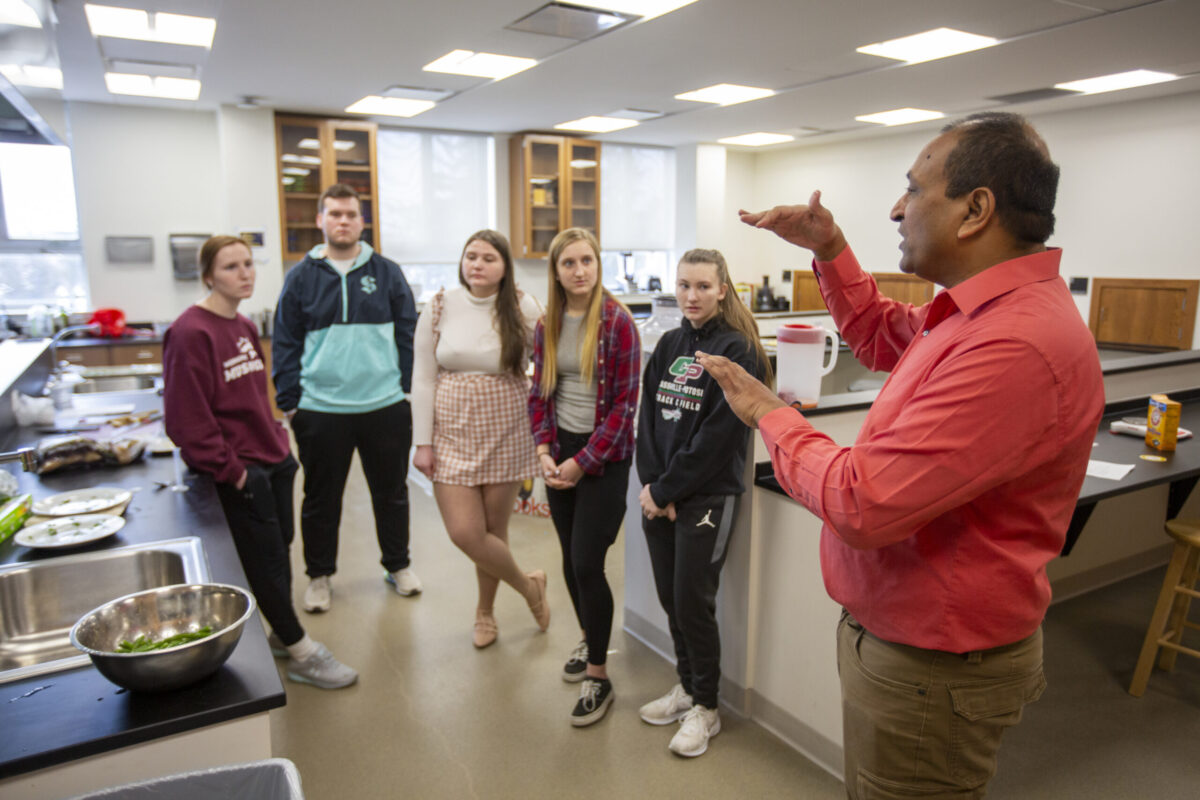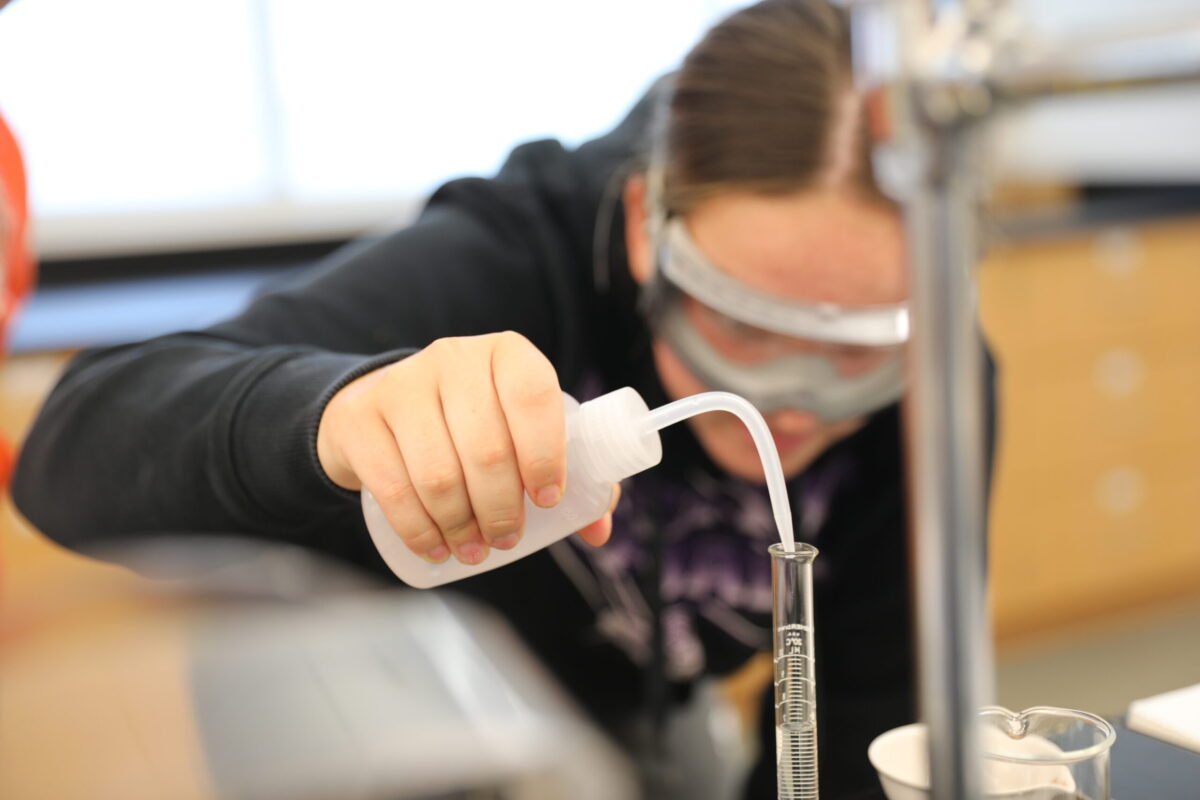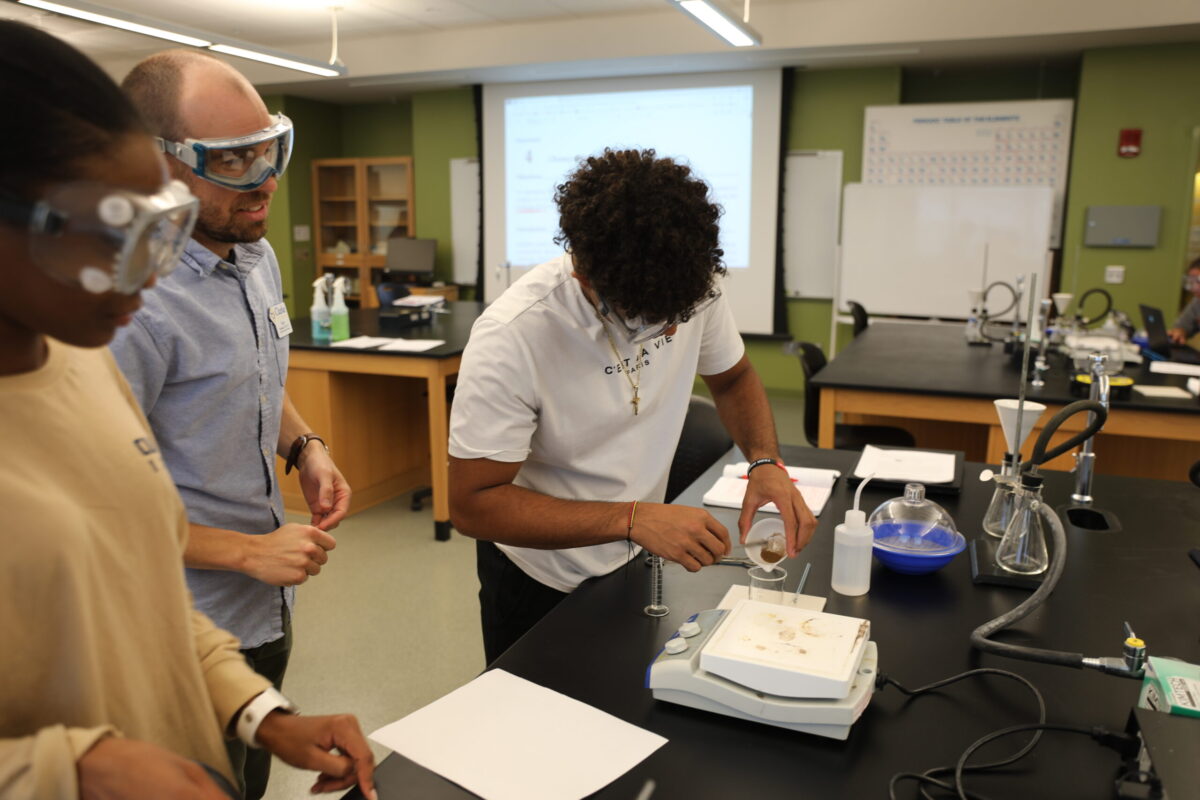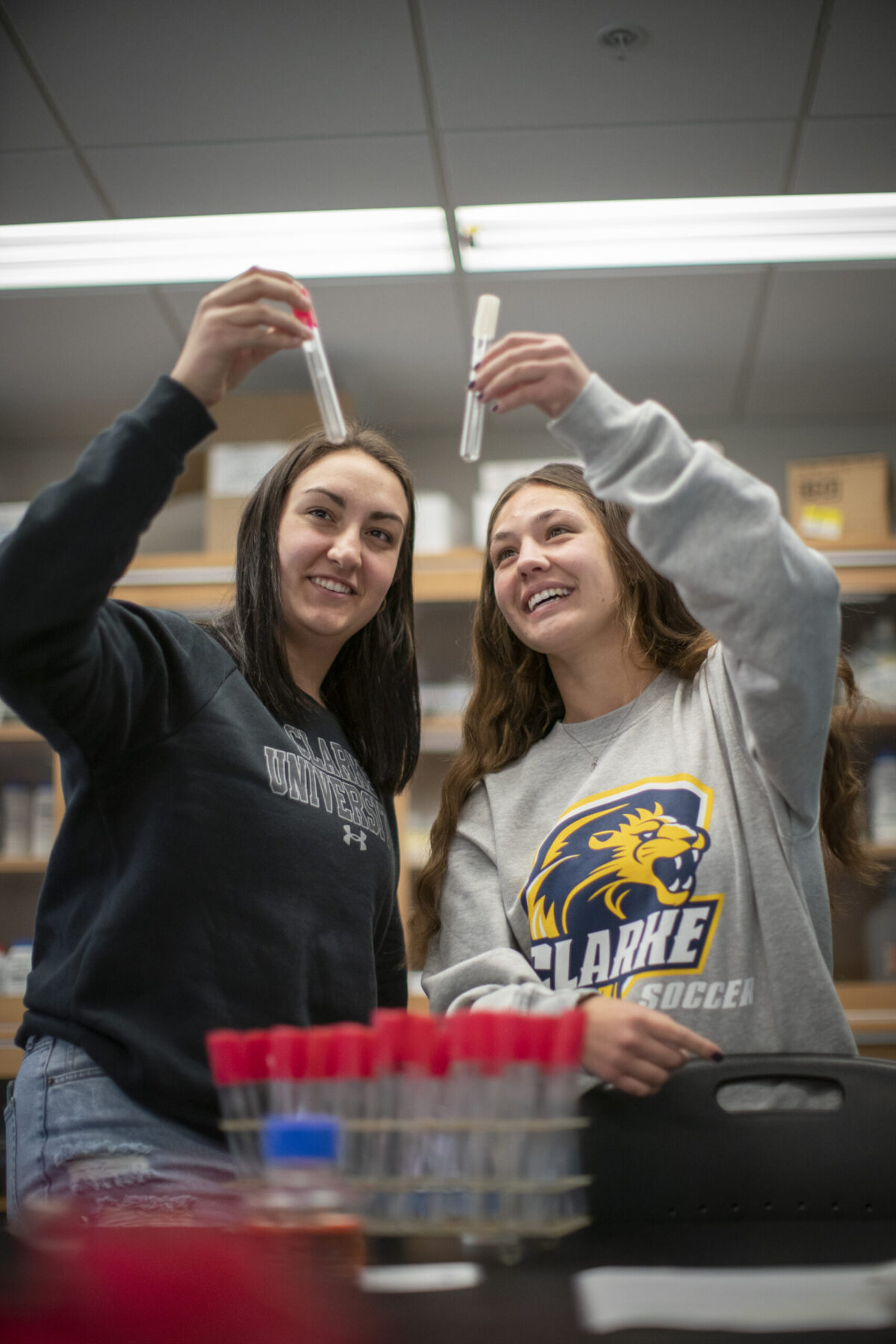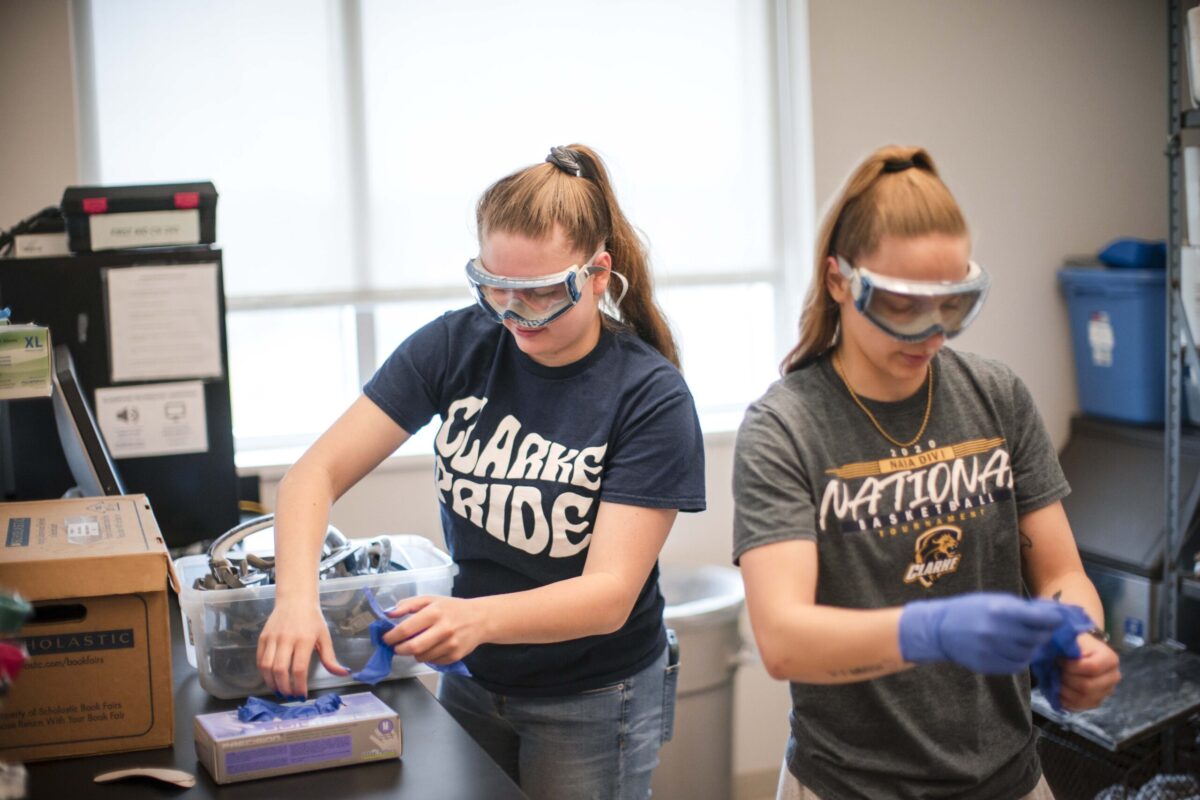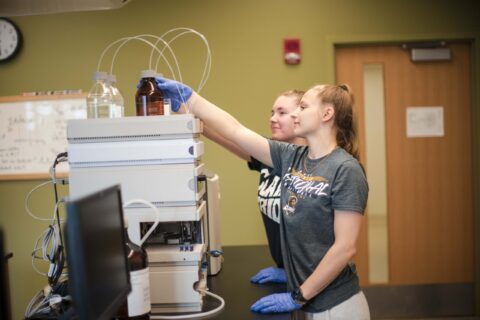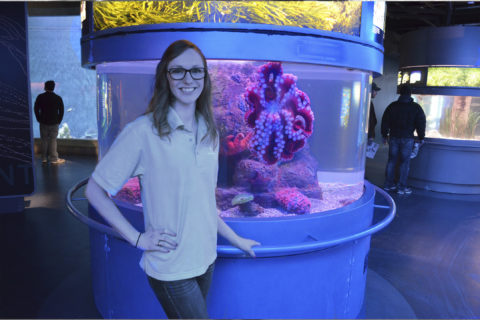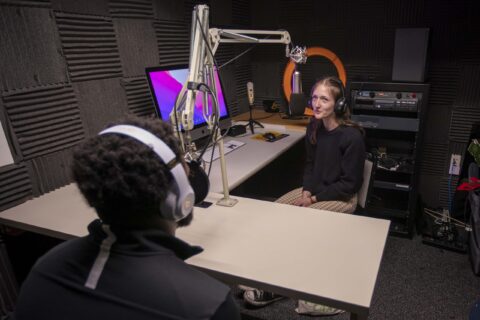Sunil Malapati, Ph.D.
I am very proud to be part of a department that sets very high standards for student achievement, and our students have risen to the challenge.
Clarke is home to one of the most exceptional Chemistry degrees in Iowa, with dedicated faculty and opportunities for hands-on research beginning in your first year of study.
As a Chemistry major at Clarke University, you will embark on the study of matter — or essentially, every physical thing in our universe. From the micro to the macro scale, Chemistry is the study of natural substances and their ability to change and react. As a continually evolving field, your Chemistry degree could be the engine behind scientific breakthroughs in medicine, climate change, manufacturing, and so much more.
Our coursework is aligned to National Chemical Society standards and your work offers meaningful contributions to the field. With the guidance of our exceptional faculty, you’ll have access to some of the most advanced tools and labs in the region. Clarke’s Marie Miske Center for Science Inquiry houses a nuclear magnetic resonance (NMR) spectrometer, gas chromatography-mass spectrometry (GC-MS) instrument, two high-performance liquid chromatography (HPLC) instruments, and other industry-grade tools. Plus, it pays to participate. Students can earn money as a chemistry tutor, stockroom assistant, or enjoy additional scholarships and support as part of our Scholar’s Program.
Additionally, your work can benefit the greater good long before you graduate. Much of our Chemistry curriculum and related coursework includes practical field experience such as STEM outreach events, field trips to local industries utilizing chemistry, and attending conferences. For many, these connections can lead to internships and even future careers. Clarke graduates go on to work as professional chemists and biochemists, pathologists, dieticians, computational chemists, teachers, occupational safety specialists, hazardous waste managers, forensic chemists, and more.
While rigorous, the Chemistry program at Clarke creates a network of support for academic success. This includes everything from one-on-one time with our professors, to cross-curricular collaboration such as Let’s Talk Math open study sessions and peer and professional tutoring through our Academic Support Center.
The world needs professionals who know science. Are you ready to become one of them? Apply to Clarke University’s Chemistry program today!
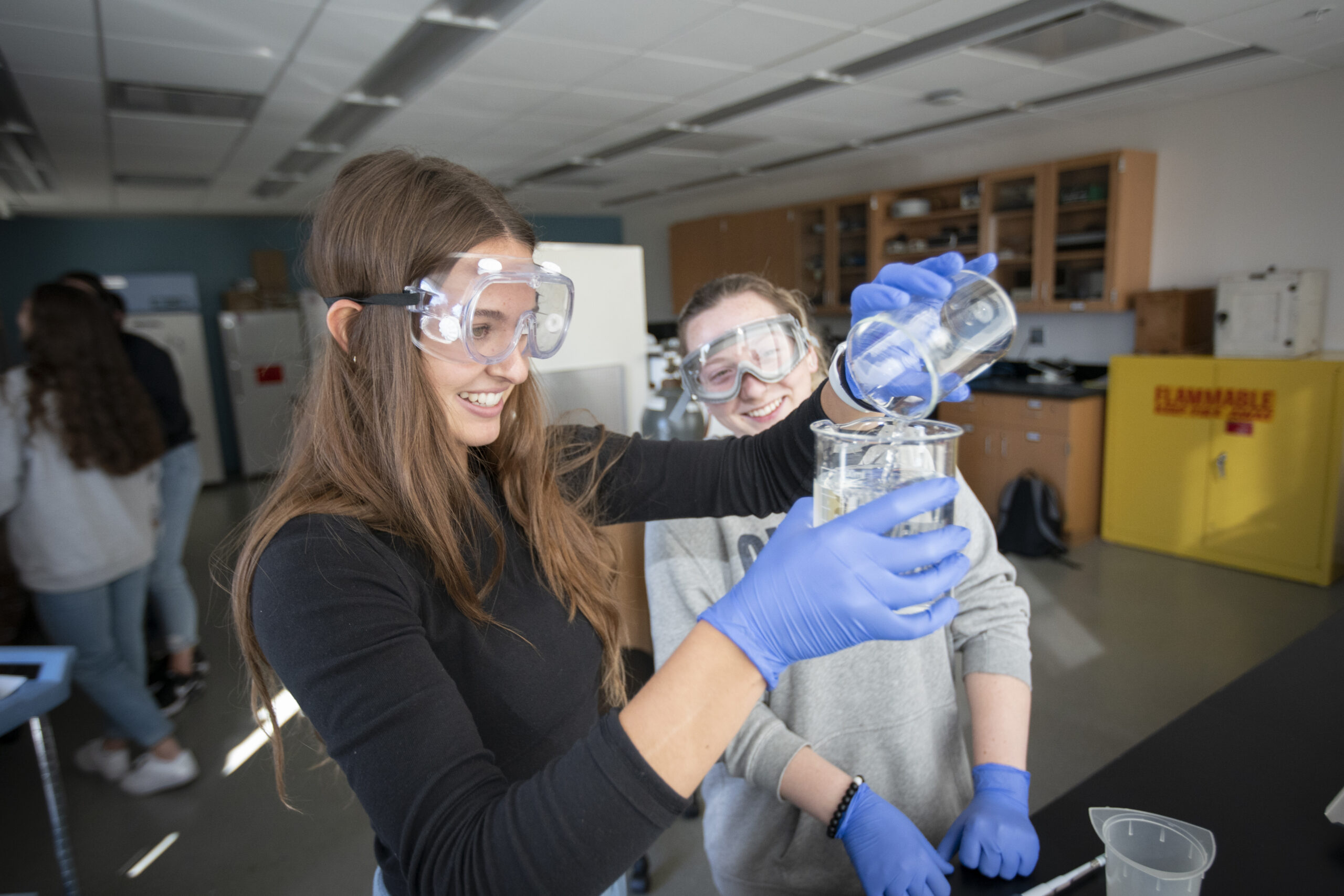
Below is a small sampling of the types of classes you may take as a Clarke Chemistry major:
BIOCHEMICAL METHODS— Learn basic Biochemical techniques and implement them in the lab as you extract, isolate and characterize a single protein.
SEPARATION METHODS — In the laboratory, students conduct a half-semester research project to determine the parameters for optimal separation of a mixture by HPLC.
CHEMISTRY CAPSTONE — Your Capstone course is a culmination of your Chemistry degree, allowing you to work alongside a Clarke professor as you conduct, analyze, and present your own research.
The Clarke Chemistry Program offers a truly unique undergraduate experience to its majors, including:
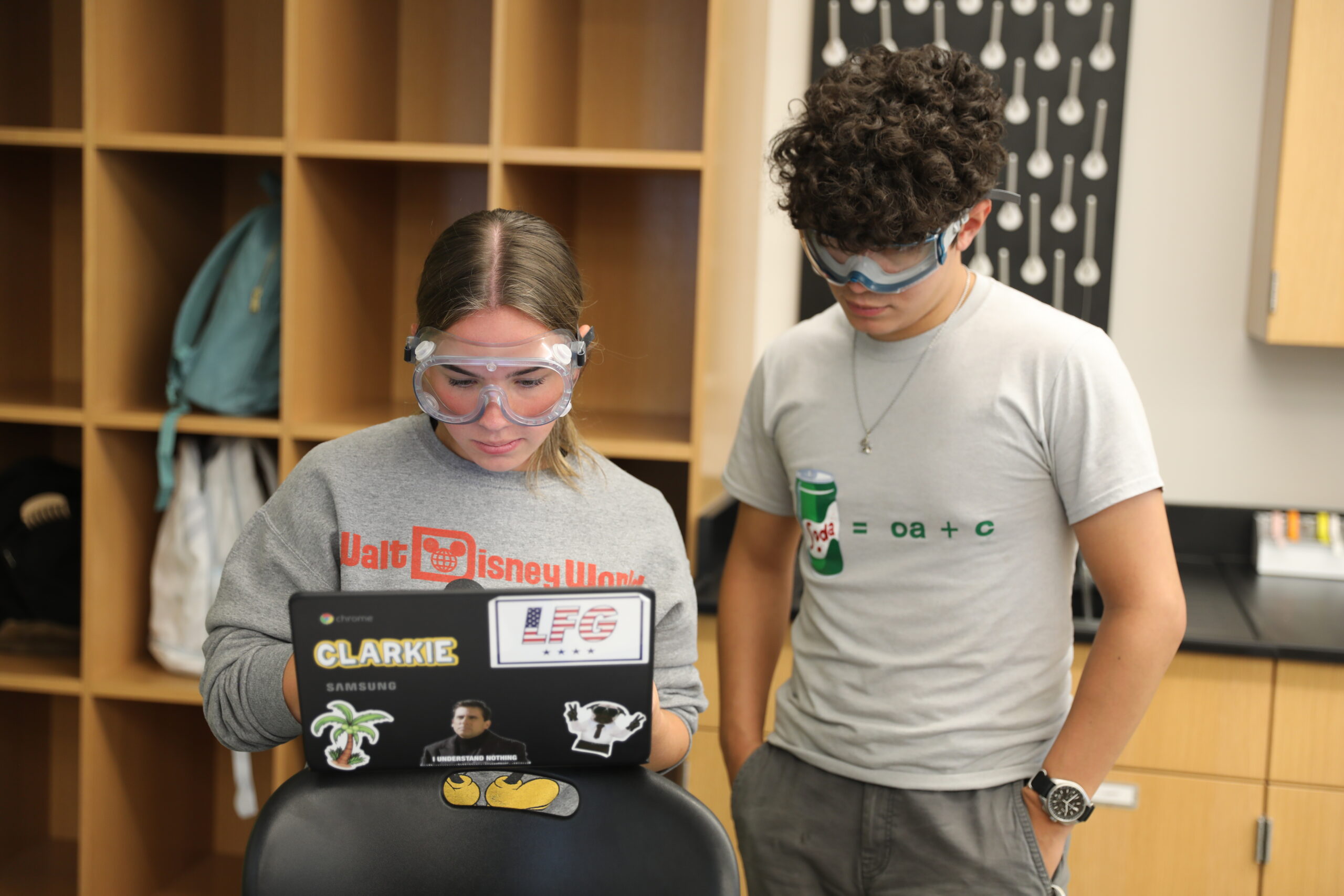
How You’ll Learn
Clarke’s use of technology is pervasive – from hand-held data collection to molecular modeling. Visualization and the use of software is key to understanding. You will be able to use this equipment and more in the lecture-lab classrooms found in the Marie Miske Center for Science Inquiry. Introductory research classes are an option as early as first year.
Interesting Internships
Opportunities abound for students interested in college Chemistry in Iowa, the Midwest, and nationwide. Recent Clarke chemistry majors worked paid internships at:
What careers are available with a Clarke Chemistry degree?
A degree in Chemistry provides a strong foundation in science and mathematics that gives you the flexibility to pursue a wide range of careers. In general, the employment sectors seeking Chemistry degrees include Academia, Industry, Government, and Health Care. Some example careers within these sectors include:
Applicants are considered on an individual basis. Apply to Clarke today to begin your journey.
The Mary Miske Center for Science Inquiry has modern classroom and lab spaces offering industry-grade equipment, including a 10-table cadaver lab. At Clarke, you’ll get hands-on lab experience as early as your first year.
You will learn by observation and participation at off-campus laboratories or field settings through internships and experiential education ventures. Internships often facilitate entrance into the job market and are highly recommended for acceptance into some graduate programs.
Life at Clarke is living traditions, being proud, participating in the campus community, and being an active member of our greater community.
Clarke University offers several faculty-sponsored study abroad experiences to destinations such as Spain, Scotland, Ireland, and Japan. Study abroad trips encourage you to experience different cultures, broaden your mind, and discover your own passions.
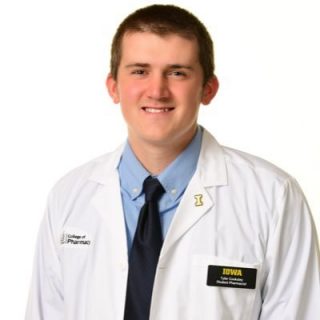
My experience at Clarke provided me with a very solid understanding of the physical sciences which has been a part of almost all of my classes so far. Having a chemistry degree provides a great background when learning about pharmacokinetics, pharmacodynamics, and the drug making process. There are a couple classes that stand out. Analytical Chemistry taught by Dr. Tony Breitbach taught me about taking the time to make careful measurements to get the right product, which I was able to use in pharmacy compounding classes. Medicinal Chemistry taught by Dr. Karen Glover provided a good first step into the world of pharmacokinetics and helped me get a step up on classmates that had not been previously exposed to that material.
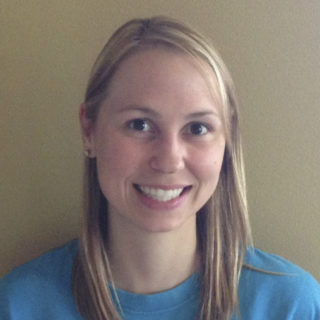
My chemistry professors at Clarke helped encourage my critical thinking, showed me the benefits of being thorough, and facilitated my personal and professional growth.
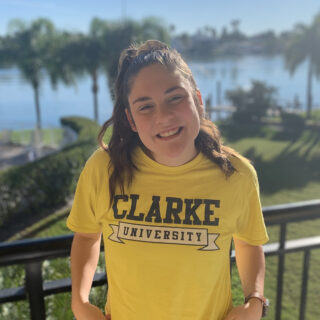
My classes and research experience prepared me for the rigor of graduate level chemistry classes. I participated in many activities including golf, student government, math club, chemistry tutoring and more, which, in conjunction with my schoolwork and a part time job, prepared me for balancing my current course load, participating in active research, and teaching general chemistry labs. The work life balance that I learned at Clarke has helped me to stay grounded and keep my priorities straight.
Percent of Clarke chemistry graduates who secured a job in their chosen field or enrolled in graduate school by August.
Chemistry majors rate among the highest in job satisfaction after graduation – 85.2% – according to studentsreview.com.
Work one-on-one with faculty on an undergraduate research project – an important criterion for entering graduate school.

